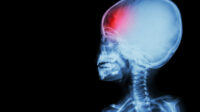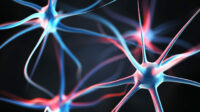Are you preparing for your Neurology Board Exam or the USMLE® Step 1 or Step 2 exams? If so, you might want to familiarize yourself with the concept explained in the video below as it is one that you will likely see on your board exams.
In this video, Adam Goodcoff, a Resident Physician in Emergency Medicine, answers and provides a complete explanation of a BoardVitals practice question on which cell type produced the serum substance that was elevated during epileptic seizures in a patient. Before you watch the video, see if you can correctly answer the question.
Neurology Board Exam Question
A patient is brought to the emergency room by ambulance for new-onset of seizure-like activity. She has no history of seizures, but her husband, who accompanied her in the ambulance, reports that she has struggled with depression throughout her life after being abused by her stepfather.
There is a serum substance that is elevated in the presence of true epileptic seizures that will help differentiate this from a psychogenic seizure. This substance is produced by which of the following cell types?
A. Lactotrophs
B. Somatotrophs
C. Corticotrophs
D. Thyrotrophs
E. Gonadotrophs
Neurology Board Exam Question Video Explanation
This lecture is part of our Practice Connection Youtube video series where various healthcare professionals explain BoardVitals practice questions.
The correct answer is A. Lactotrophs
BoardVitals Answer Explained:
Lactotrophs produce prolactin, which can be elevated acutely following epileptic seizure activity. Prolactin is not typically elevated after a psychogenic seizure, as this type of seizure is more of a psychiatric issue that does not cause activity in the brain.
Prolactin levels of >200 ng/mL are almost universally due to a pituitary neoplasm. You’re going to want to look for the elevated prolactin which is produced by the lactotrophs.
Here’s why the other answers are incorrect:
B. Somatotrophs produce growth hormone, which is elevated in gigantism (in children) and acromegaly (in adults).
C. Corticotrophs produce ACTH. Elevated ACTH is found in Cushing’s disease.
D. Thyrotrophs produce TSH, which is most commonly increased in patients with hypothyroidism.
E. Gonadotrophs produce FSH/LH. FSH is most commonly elevated in the setting of ovarian failure/menopause.
Vital Concept:
Prolactin can be elevated acutely following an epileptic seizure, but it is not typically elevated after a psychogenic seizure.
Reference:
Psychogenic nonepileptic seizures: EEG and investigation.
Henry’s Clinical Diagnosis and Management by Laboratory Methods, 22nd ed.
How did you do on this Neurology board exam question?
Remember, this is a concept that you will likely encounter on the Neurology and Child Neurology Board Exams as well as the USMLE® Step 1 and USMLE® Step 2 Exams. If you’re looking for more practice questions to study with, check out our question banks at boardvitals.com. Get started for free with a free trial today!
You can watch more Practice Connection videos by following BoardVitals on YouTube. Follow Adam Goodcoff on Instagram.




